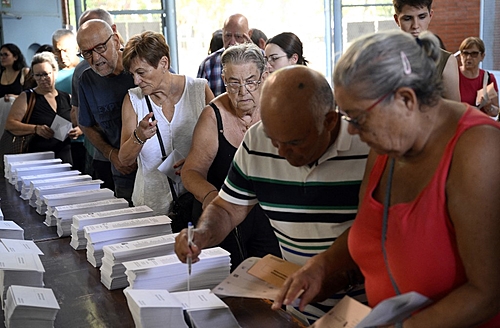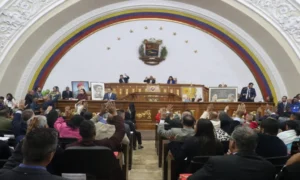
Under the leadership of Alberto Nuñez Feijóo, the Popular Party (PP) won 136 seats in the legislative elections in Spain, held this Sunday (23). However, the party did not achieve an absolute majority of 176 seats in parliament, which could lead to an alliance with the far-right Vox party, in third place, with 33 seats.
On the left, the Spanish Socialist Workers’ Party (PSOE), under the leadership of Pedro Sánchez, took 122 seats. In fourth place, also leftist Sumar, with 31. The expectation is that both also form an alliance.
The possible right-wing coalition will bring a radical conservative group to power for the first time in more than 40 years. Since 1975, when Francisco Franco’s dictatorship ended, election results have been split between the right-wing PSOE and PP.
There is still no official confirmation of an agreement between the right-wing parties. However, they have formed coalitions in over 130 state and local councils. Feiijoó does not admit the possibility of a coalition publicly, but he must be deadlocked in the face of the result.
Even if they join, the two parties will not form a majority in parliament, which brings uncertainty to the future of Spanish politics. On social networks, publications even mentioned that it will be necessary to call a new vote.
Considered the most uncertain election in Spain since the end of Francoism, this year’s vote was tense, with the two main parties in the country – PP and PSOE – side by side in practically the entire process. About 24 million people went to the polls.
Extremism lost strength
Vox emerged in 2013 and gained strength from 2018 onwards. Growth was greatly permeated by feelings of independence from Catalonia and the expansion of extremist discourse on the internet. The party is against immigrants, women’s rights, the LGBTQIAPN+ agenda, sustainability policies and the United Nations (UN) agenda against climate change.
Despite being in third place in the election, the party lost seats in relation to the 2019 elections. It fell from 52 seats to 33. The PP, which left power in 2018 after corruption scandals, had 89 seats in the previous election. On the other hand, PSOE won 120 seats in the last poll and Sumar, 35.
The result may give more space for the search for support among the small subtitles. The two largest right-wing parties had 169 vacancies and the left-wing parties reached 153. According to the newspaper El País, the leader of the Republican Left of Catalonia (ERC), Gabriel Rufián, commented on the matter minutes before the end of the counting.
“We can tip the scales. From the first minute we made ourselves available to do what we said we would do, which is to set a price. Putting a dilemma on the table of Spanish progressivism: either Catalonia or Vox.” The ERC will occupy seven seats in parliament.
Míriam Nogueras, candidate of the center-left Junts, stated that the party’s priority is Catalonia. “A stage is opened for change, for recovering unity. At Junts we kept the position, but it was worth it. We will not make Pedro Sánchez president for nothing.”
Editing: Douglas Matos
Source: www.brasildefato.com.br

